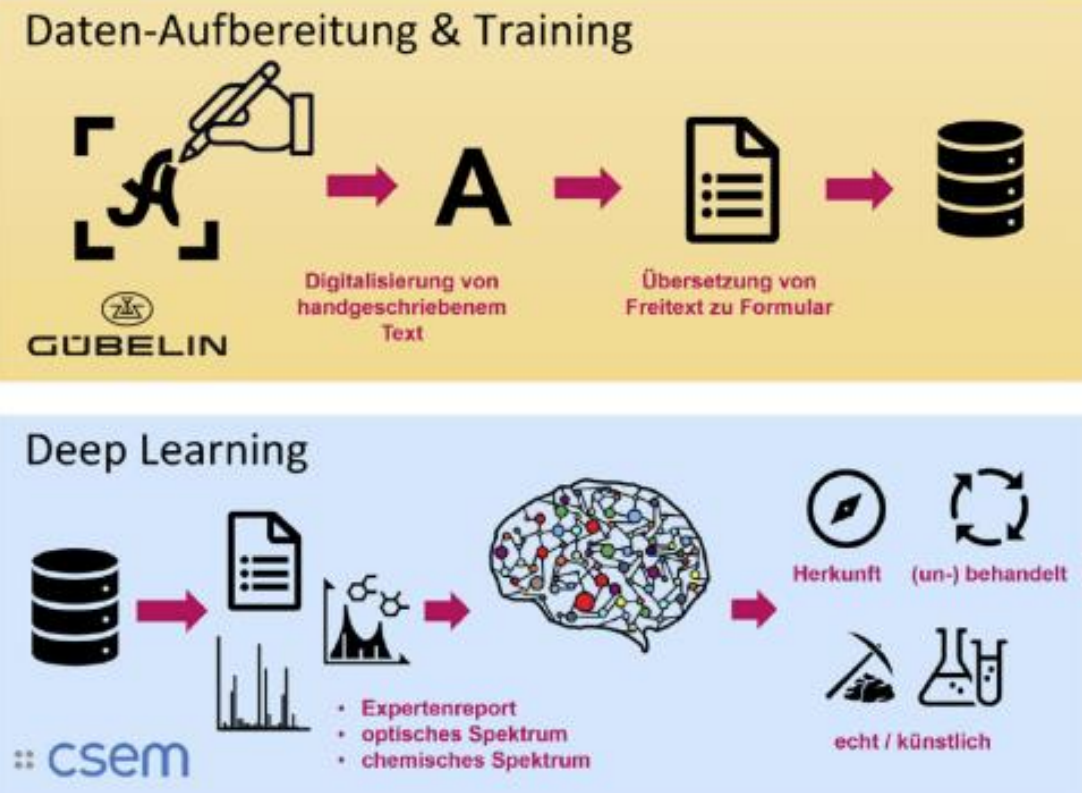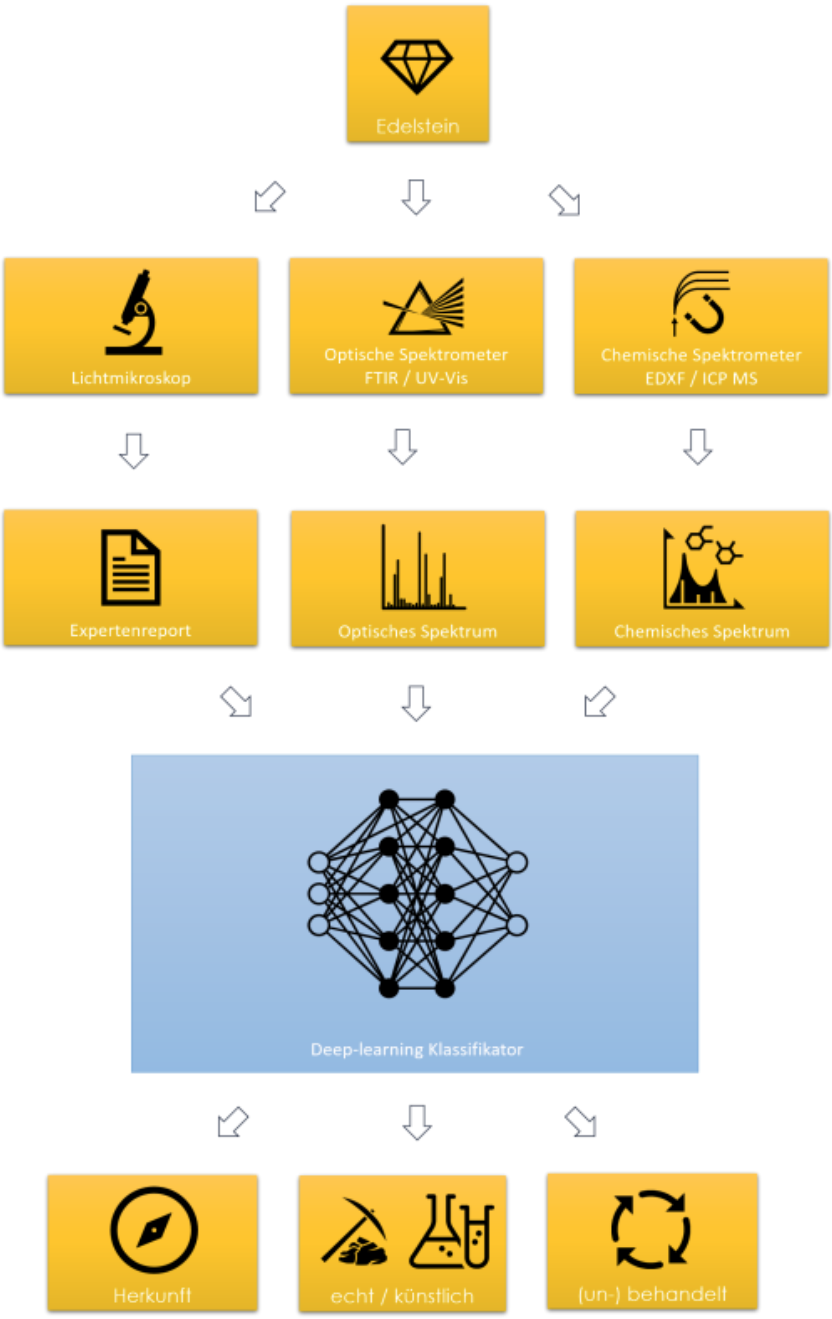
A key aspect of the jewellery industry is the correct determining of a gemstone’s country of origin and authenticity. Today, this process relies heavily on expert human judgment and analysis. As a pioneer in this field, Gübelin Gem Lab has teamed with CSEM to automate these processes using machine learning, a key area of artificial intelligence (AI). This new AI approach aims to increase the consistency and reliability of data interpretation, reduce potential human errors, and save time.
On the road to artificial intelligence
Recently, artificial intelligence methods have entered different aspects of daily life. Aside from their application in areas such as market and consumer research, artificial intelligence methods are increasingly penetrating various industries complementing human-based expertise. In gemmology, the use of automated data evaluation methods is still in its infancy and is so far used as a support tool for human experts.
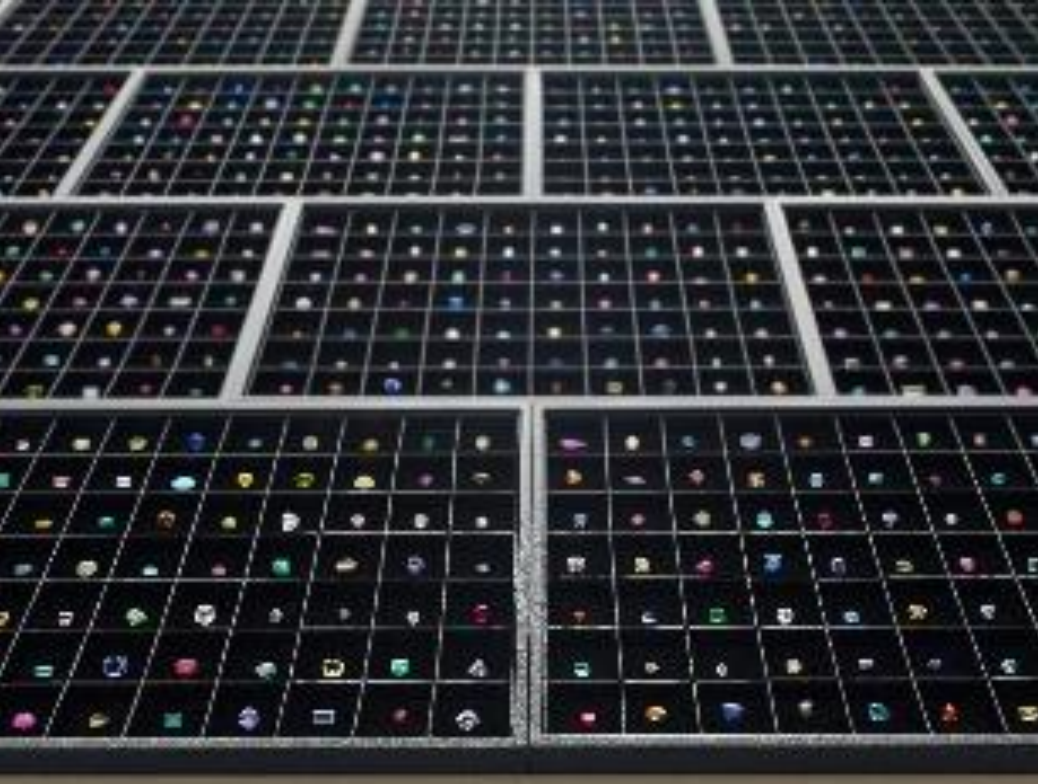
Deep learning on a new level
The Gübelin Gem Lab ventured into the discipline of multivariate and automated data evaluation technologies some ten years ago, namely for the evaluation of large sets of chemical data, and to harmonize gemstone interpretations through all its entities. To bring gemmology to a new level, the Gübelin Gem Lab has partnered with CSEM to develop and transfer world-class data handling technologies based on artificial intelligence and deep learning using neural networks.
“The main benefit of deploying machine learning methods in gemmology is to increase the consistency of gem lab results and raise both the public’s and industry’s trust in their gemstones and jewellery, while also enabling the scalability of gem testing services.”
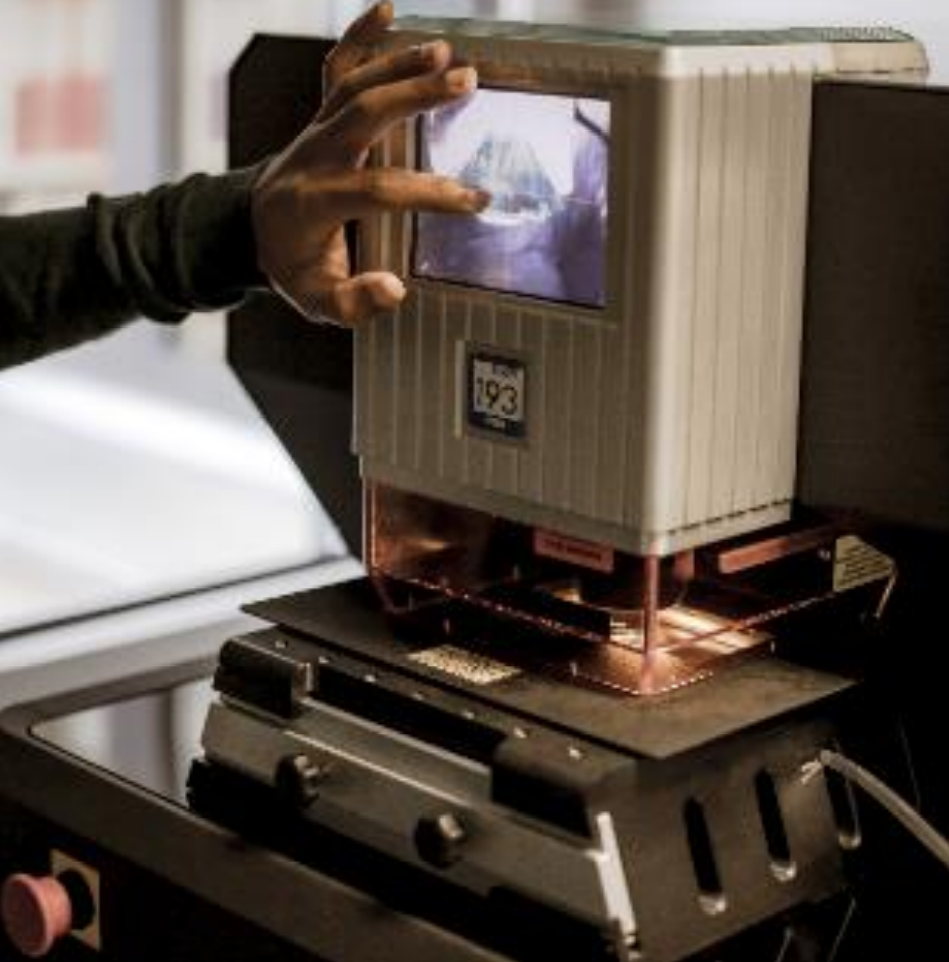
The joint project proposal titled ‘Gemtelligence – Software development for the automated analysis of gemstones’ was submitted to Innosuisse, a governmental institute with the mission to promote science-based innovation, and has recently been approved. Thus, the Swiss government is granting significant funding to this cutting-edge project, which will encompass the assessment and evaluation of all types of analytical data typically collected in modern gem labs. Dr. Daniel Nyfeler, Managing Director of the Gübelin Gem Lab, states: “The main benefit of deploying machine learning methods in gemmology is to increase the consistency of gem lab results and raise both the public’s and industry’s trust in their gemstones and jewellery, while also enabling the scalability of gem testing services.”
Reference Stone Collection as a backbone
The project will develop machine learning-based algorithms, which will be trained to evaluate standard gemstone characteristics. The base will be an existing catalog of data from tens of thousands of clients’ gemstones the Gübelin Gem Lab has tested since the 1970s, substantially complemented through data from the unique Gübelin Reference Stone Collection that comprises of more than 27,000 gems. Raphael Gübelin, President of Gübelin, explains: “This innovative approach is a perfect example of the pioneering spirit of the House of Gübelin. The combined databases of the Reference Stone Collection and client gemstones, gathered over many decades, form the backbone of Gemtelligence and will be combined with the latest technology to bring gemmology to a new level.”
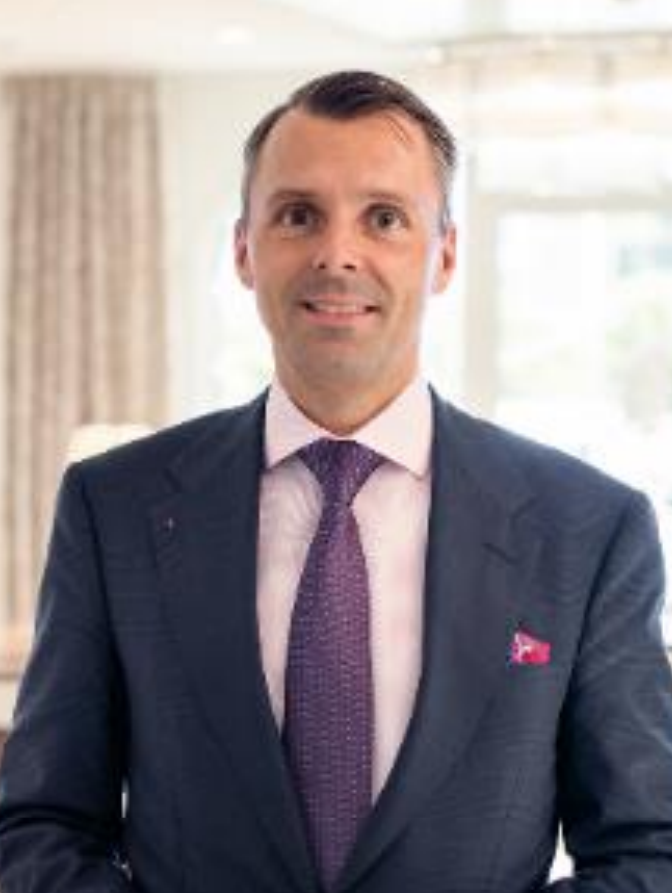


“Creating a super-expert”
For this ground-breaking project, the Gübelin Gem Lab and CSEM have joined forces. CSEM’s expertise to handle complex and heterogeneous data is crucial for this project. “We are dealing with data with different degree of structuring, ranging from spectra, chemical element concentrations, to microscopy images, handwritten descriptions and subjective reflections by various experts,” says Philipp Schmid, Head of Industry 4.0 and Machine Learning at CSEM. “The goal is to create a kind of super-expert, working hand-in-hand with the human experts,” says Schmid.
